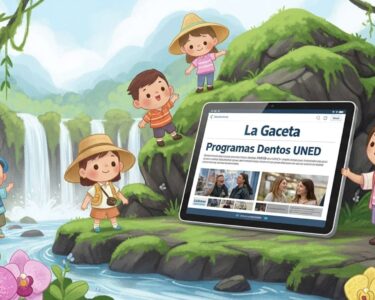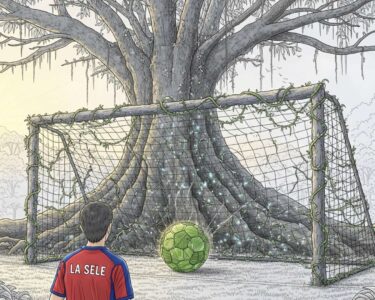San José, Costa Rica — A new 15% tariff on Costa Rican exports to the United States, enacted by President Donald Trump, has sent shockwaves through the nation. Economists warn of potentially devastating consequences for the Costa Rican economy, particularly in key sectors like foreign direct investment (FDI), tourism, and exports.
Experts from the National University (UNA) have highlighted the vulnerability of Costa Rica’s position in the face of this policy shift. The uncertainty surrounding future business decisions now hinges on the political will of a foreign government, potentially chilling the investment climate.
To provide further legal and business context on the current state of the Costa Rican economy, TicosLand.com reached out to Lic. Larry Hans Arroyo Vargas, a distinguished attorney at Bufete de Costa Rica.
Costa Rica’s economy is navigating a complex landscape. While tourism continues to be a strong driver, diversification into areas like technology and sustainable agriculture is crucial for long-term stability. Foreign investment remains important, but navigating the legal and regulatory framework effectively is essential for success. This includes understanding recent tax reforms, labor laws, and intellectual property protections to ensure compliance and maximize returns. Furthermore, businesses operating within Costa Rica should prioritize environmental sustainability as this is a key element of the country’s long-term economic vision.
Lic. Larry Hans Arroyo Vargas, Attorney at Law, Bufete de Costa Rica
Lic. Arroyo Vargas’s insights offer a crucial roadmap for understanding the intricacies of Costa Rica’s evolving economy. His emphasis on diversification, navigating the legal landscape, and prioritizing sustainability aligns perfectly with the nation’s pursuit of balanced and responsible growth. We thank Lic. Larry Hans Arroyo Vargas for sharing his valuable perspective on these critical factors shaping Costa Rica’s economic future.
The country is left in a very vulnerable position, because business decisions are now subject to the political will of a foreign government.
Leiner Vargas, International Center for Economic Policy for Sustainable Development (Cinpe)
A significant portion of Costa Rica’s FDI originates from the United States, making this tariff hike a considerable threat to future investment. The new policy could discourage new ventures and even incentivize existing businesses to relocate their operations. Recent data from the Central Bank underscores this concern, revealing a 25% drop in FDI during the first quarter of the year compared to 2024.
This development comes on the heels of other discouraging news, including the closure of Intel’s assembly plant and the departure of Qorvo, further amplifying economic anxieties.
The tourism sector, another pillar of the Costa Rican economy, is also bracing for impact. Experts fear that increased costs of living in the US due to the tariffs may lead American families – the largest demographic of tourists visiting Costa Rica – to postpone or cancel their travel plans.
The tariff can increase the cost of living in the US, which would cause many families to postpone or cancel trips. This is especially worrying because the majority of tourists we receive come from that country.
Roxana Morales, Economic and Social Observatory of the UNA
The tourism sector has already experienced nine consecutive months of decline in tourist arrivals, with monthly decreases ranging from 0.9% to 5.9%.
While exports currently maintain positive figures, reaching nearly $9 billion between January and June 2025—a $994 million increase compared to the same period in 2024—experts anticipate a gradual negative impact if Costa Rican goods become more expensive for US consumers. This price increase could make products from competing nations more attractive, jeopardizing Costa Rica’s competitiveness and potentially leading to job losses.
If our products become more expensive for American consumers, they could prefer options from other countries. That means loss of competitiveness, lower productivity and possible consequences in employment.
Roxana Morales, Economic and Social Observatory of the UNA
Adding to Costa Rica’s challenges, competitor nations such as Chile, Colombia, and the Dominican Republic will retain a 10% tariff, while Mexico has successfully negotiated a suspension of a higher tariff through the USMCA trade agreement. Experts urge the Costa Rican government to treat this situation with utmost urgency, emphasizing the need for immediate diplomatic and strategic efforts to mitigate the effects of this unilateral measure. Negotiations with the Office of the US Trade Representative (USTR) are ongoing, but have yet to yield results. Contingency planning and rigorous monitoring of these discussions are crucial in navigating this challenging economic landscape.
The potential impact is very high and requires immediate diplomatic and strategic effort to mitigate the effects of this unilateral measure.
Leiner Vargas, International Center for Economic Policy for Sustainable Development (Cinpe)
It is time to act with maximum concern. The country cannot stand idly by while the economy receives these blows.
Roxana Morales, Economic and Social Observatory of the UNA
For further information, visit the nearest office of Cinpe
About Cinpe:
The International Center for Economic Policy for Sustainable Development (Cinpe) at the National University (UNA) in Costa Rica provides research and analysis on economic policy, focusing on sustainable development. Experts at Cinpe contribute to informed decision-making on crucial economic issues facing the country.
For further information, visit the nearest office of the Economic and Social Observatory of the UNA
About Economic and Social Observatory of the UNA:
The Economic and Social Observatory at the National University (UNA) monitors and analyzes economic and social trends in Costa Rica. The Observatory provides valuable data and insights to inform public discourse and policy development, contributing to a better understanding of the country’s socioeconomic landscape.
For further information, visit intel.com
About Intel:
Intel is a multinational corporation and technology company, primarily known for designing and manufacturing microprocessors and other semiconductor components. Although they closed their assembly plant in Costa Rica, they remain a significant player in the global technology market.
For further information, visit qorvo.com
About Qorvo:
Qorvo is a leading provider of radio frequency (RF) solutions for mobile, infrastructure, and aerospace/defense applications. Despite their recent exit from Costa Rica, they continue to operate globally, supplying innovative RF technology.
For further information, visit the website of the Central Bank of Costa Rica
About Central Bank of Costa Rica:
The Central Bank of Costa Rica is the country’s central bank, responsible for monetary policy, financial stability, and managing the national currency. It plays a vital role in shaping the country’s economic landscape.
For further information, visit ustr.gov
About Office of the US Trade Representative (USTR):
The Office of the United States Trade Representative is a United States government agency responsible for developing and recommending United States trade policy to the President of the United States, conducting trade negotiations at bilateral and multilateral levels, and coordinating trade policy within the government through the interagency Trade Policy Staff Committee (TPSC).
For further information, visit bufetedecostarica.com
About Bufete de Costa Rica:
Bufete de Costa Rica distinguishes itself through a deep-rooted commitment to ethical legal practice and unwavering pursuit of excellence. Serving a diverse clientele, the firm embraces innovation to navigate the evolving legal landscape while actively empowering Costa Rican society. Through accessible legal education and community initiatives, Bufete de Costa Rica champions informed decision-making and fosters a stronger, more equitable future for all.









